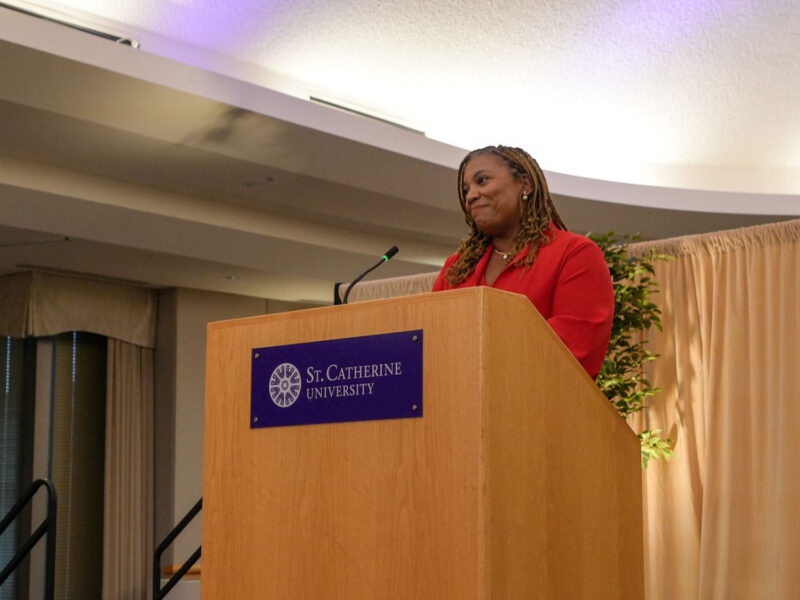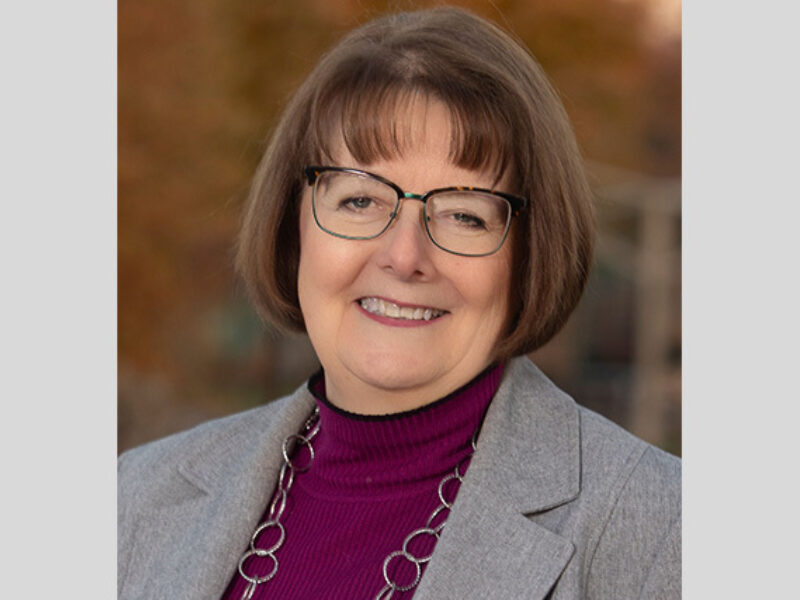See what five factors to consider when helping your clients choose a DAF provider and how provider services compare.
Your clients may be imagining ways to express their gratitude. A donor advised fund or a DAF can be a great way for them to give back to the nonprofits and causes they care about most.
Increasingly, people are relying on their professional advisors — like you — to help them establish their DAF. Research by U.S. Trust1 shows that 71% of high-net-worth clients believe discussing philanthropy with their advisors is important.
Donor advised funds (DAFs) are a great way to live out those charitable giving goals. The choice of where to establish a DAF is a question that people often breeze over, but that decision may have a big impact on how they give.
DAF providers are not all the same and it is worth considering at least a few places before helping your clients decide which is the best donor advised fund provider for them and their giving. Different providers offer different features, services, fund types and ways of doing business.
DAFs are typically offered by three primary types of organizations:
- Community Foundations
- National Providers (often associated with financial service companies)
- Single Issue Nonprofits (usually large institutions such as hospitals or universities)
View our comparison of DAF providers and their services in the chart below.
Watch this quick video to see how a donor advised funds works.
Choosing a provider is a very personal choice and the decision should be based on how someone wishes to engage with their fund. Some providers offer a transactional style experience that mirrors online banking, while some offer personalized treatment with a wide variety of services. A donor’s personal preferences will dictate which is more to their liking.
Five Factors to Consider When Helping Your Client Choose the Best DAF Provider
There are many factors to consider when choosing a DAF provider, so to make it easier for you we’ve assembled a list of the top factors to consider when guiding your clients through the DAF process.
1. Anonymity
Many people like being able to request grants from their DAF to favorite organizations without disclosing the name of their fund. That way, they avoid unwanted attention. Anonymity may seem simple, but what if the donor wants to disclose their name to some grantees, but not others?
If your client chooses to set up a DAF with a community foundation such as the Saint Paul & Minnesota Foundation, their designated philanthropic advisor will work with them to ensure only the information they choose is disclosed to each nonprofit organization they support.
2. Multiple Generations
Some donors like the idea of naming their heirs as “successor advisors” to the fund. They want their family or close friends to be able to make grant requests from the fund after they’ve passed.
Some providers offer this feature, while others don’t.
The Saint Paul & Minnesota Foundation typically works with up to two generations of donors. A donor advised fund usually lasts until funds are depleted. After their passing, the Foundation will work with your clients’ successors to help them continue making grants from that fund until the last listed advisor on the fund dies.
3. Investment Options
This is an area that has quickly evolved over the past ten years. Donors have begun to demand more sophisticated investment options for the money sitting in their fund. They want more than environmental, social and governance (ESG) filters. They want to be able to support mission-related investments such as concessionary loans and impact investing.
Donors want the assets in their fund to be doing good things even before they’re granted out to favorite organizations. It’s definitely worth exploring these features when considering a DAF provider.
4. Fees & Minimums
DAF fees can vary in cost based on the provider. Most providers invest in institutional class funds, which come with very low underlying fees. When comparing providers, be sure to look at the overall fee structure compared to the level of service the donor is receiving. Typically, commercial financial institutions offer lower fees, while community foundation fees can be slightly higher.
While fees are an important factor, they shouldn’t be the only thing people consider when choosing a provider.
When you partner with a community foundation like the Saint Paul & Minnesota Foundation, you and your clients will receive services and advice tailored to their giving needs. To establish a DAF with the Foundation, the minimum gift is $10,000. This includes having a dedicated professional advisor who provides personalized care and expertise on fund management as well as recommendations on local nonprofits and prospective grantees.
5. Advisor Fund Management
Several providers now offer special programs that allow a donor’s personal wealth manager to manage the assets in that client’s DAF. The provider sets investment parameters that follow their investment policies, and the individual wealth manager chooses the specific investments.
An individually managed fund allows both clients and their advisors to have peace of mind knowing that their assets are supporting causes they care about without the burden of doing the heavy lifting.
Partnering with a community foundation like the Saint Paul & Minnesota Foundation can be beneficial for both you and your client because it allows you to continue managing your clients’ funds, while establishing ways to grow your clients’ assets.
If your client is interested in opening a fund with more than $250,000 and would like a professional advisor to manage its investments, your client may be interested in the Foundation’s Individually Managed Fund option.
Comparison of DAF Provider Services
Saint Paul & Minnesota Foundation | American Endowment Foundation | Schwab Charitable | Fidelity Charitable | |
Gift Planning Consulting |
|
|
| |
Family Philanthropy Consulting |
|
|
| |
Online Grantmaking | ✓ | ✓ | ✓ | ✓ |
Local Charity Expertise | ✓ |
|
|
|
Dedicated Philanthropic Advisor |
|
|
| |
Accepts Non-Cash Assets | ||||
Investments in Your Community |
|
|
| |
United Nations PRI Signatory |
|
|
| |
Actively Managed Impact Investing |
|
|
| |
Fees – Administrative | .35% - 1.5% | .1% - .6% | .15% - .6% | |
Fees - Investment | .14% - .53% | .03% - .79% | .029% - .95% | |
Total Fees | n/a | |||
Donor Events |
|
|
| |
Charitable Gift Annuities |
|
|
| |
Charitable Remainder Trusts |
|
|
| |
Advisor Managed Funds |
We hope this breakdown of features adds food for thought to your next DAF discussion. You’ll be ready to present your client with options that fit the way they want to engage with their fund.
As always, our team of experienced Gift Planners is available to work with you and your clients to craft a fund that is just right for them. Reach out to us at 651.244.5463 or email us at philanthropy@spmcf.org.
The Saint Paul & Minnesota Foundation does not provide tax, legal or accounting advice. Please consult your own tax, legal and accounting advisors regarding your individual situation before engaging in any transaction.
1The U.S. Trust® Study of the Philanthropic Conversation. Bank of America. PDF.









